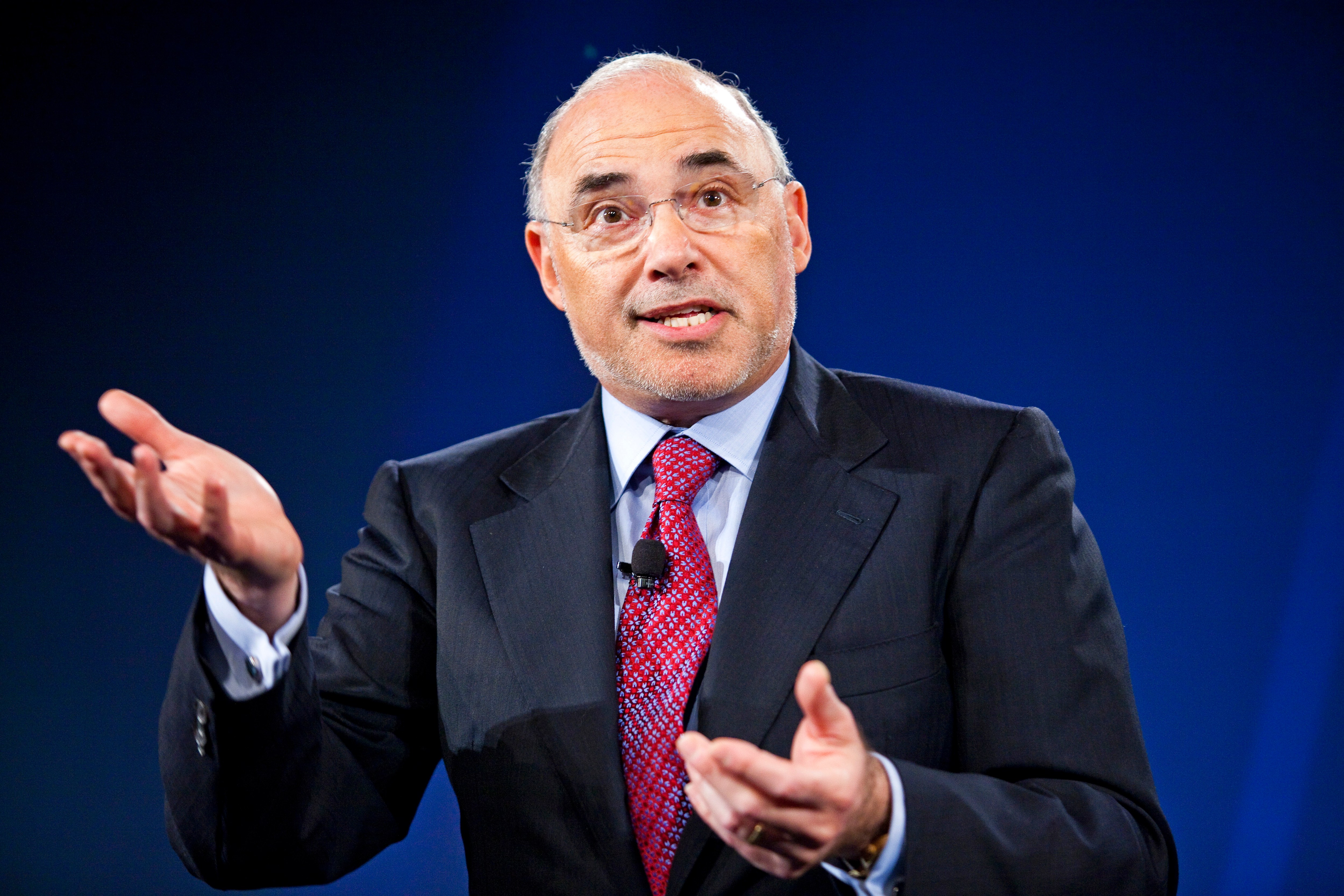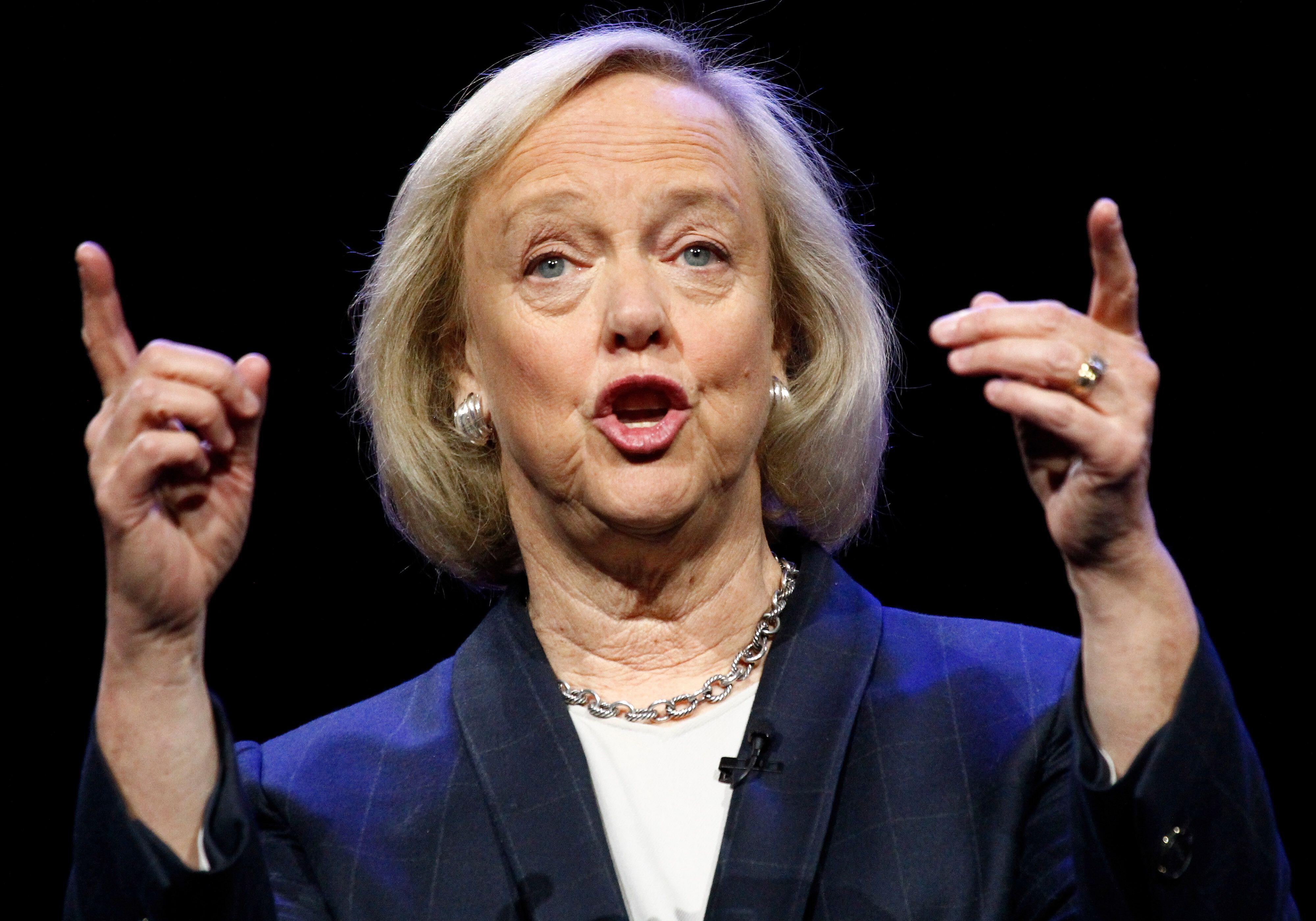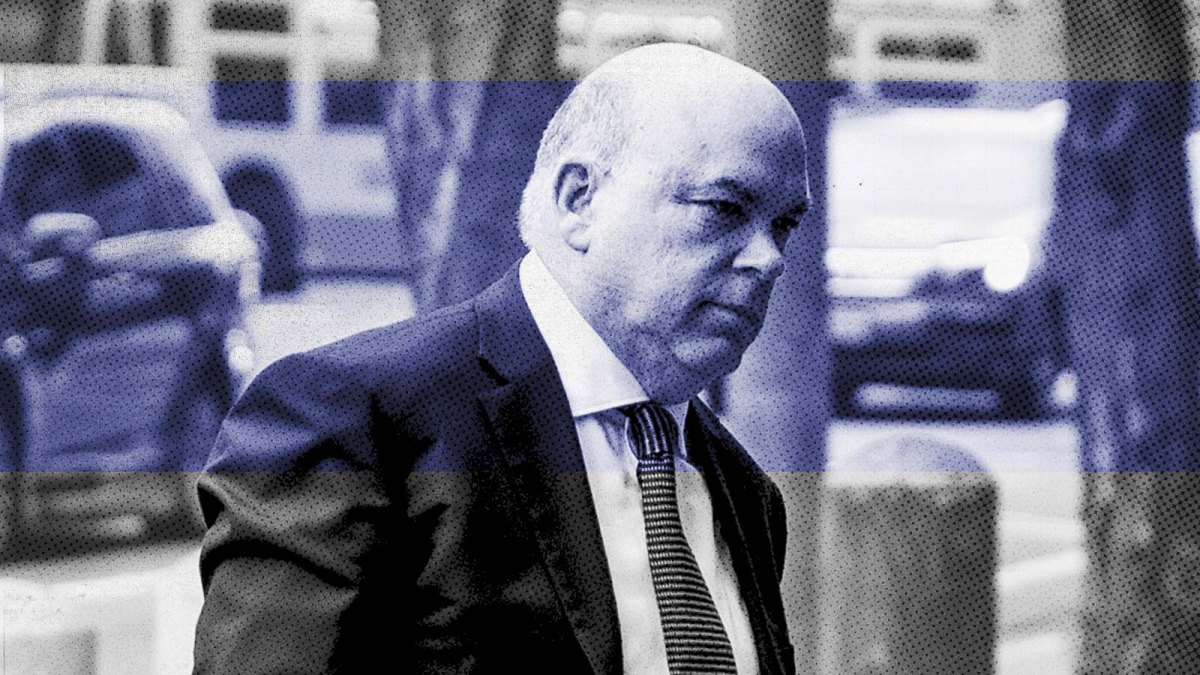MIke Lynch sat in a packed, wood-paneled courtroom, staring holes into the back of a U.S. prosecutor who, standing just ten feet in front of him, called him a criminal. It was Monday and time for the closing arguments in the 11-week fraud trial of the British tech mogul, held in a courthouse in downtown San Francisco, on a street lined with cheap sandwiches, cafes and fentanyl addicts. This was the last chance for the Justice Department to argue that the 58-year-old was in fact a fraudster of the highest order.
Lynch was a bully, the prosecutor argued. He forced subordinates to help him cook the books of Autonomy, the British software giant he founded, and thus deceive the American technology giant HP. paying billions of dollars more than it was worth when it bought the company in 2011.
In the bargain, Lynch walked away with $516 million in ill-gotten gains, the prosecutor said, which is why he argued that the entrepreneur should be convicted on 15 fraud charges — one count of conspiracy to commit fraud, and 14 individual counts of employing . of that schedule.
A guilty verdict would send him to prison for much of the rest of his natural life. “Dr. Lynch had more than 500 million reasons to lie to HP,” the prosecutor told jurors. “There is an old saying in our field: follow the money. And that’s easy in this case. The vast majority of it goes to Dr. Lynch. He had 500 million reasons to do this.”
Sushovan Hussain, former chief financial officer of Autonomy, was jailed for five years for his role in the alleged conspiracy
Three days later, the jury found Lynch not guilty on all counts. After being extradited and living under house arrest for over a year, fitted with an ankle bracelet and under 24-hour surveillance by a security guard for which he had to pay, Lynch was a free man.
He wiped the tears from his eyes. His wife, Angela Bacares, who was sitting in her usual spot in the right corner of the front bench of the gallery, rushed to embrace her husband. His decade-long campaign to prove his innocence was over. He could go home.
To say Lynch has beaten the odds is an understatement. Less than half a percent of defendants in federal criminal cases are acquitted. Sushovan Hussain, Autonomy’s former chief financial officer, had been convicted in a separate case for his role in the alleged conspiracy.
Hussain spent five years in federal prison before being released in January. He has since returned to his home in Britain. In 2022, a Supreme Court judge ruled that Lynch had defrauded HPE, as it is now known, by inflating Autonomy’s value. The American tech giant has demanded more than four billion dollars in damages, although the judge in that case indicated that any amount Lynch had to pay would be much lower.

HP fired CEO Léo Apotheker, the architect of the Autonomy acquisition, before the deal closed
KIM KULISH/CORBIS/GETTY
How did Lynch, a former adviser to Lord Cameron of Chipping Norton when he was Prime Minister, a recipient of an OBE for his services to business, and a titan of the tech scene who was once seen as Britain’s answer to Bill Gates, won the argument?
It is difficult to predict how jury trials will decide when twelve strangers are brought together with a mandate to make a unanimous decision that will change the course of a suspect’s life. The complicated (and boring) nature of the alleged crime, and the way the government chose to prosecute it, also helped. That includes Lynch’s defense, which hasn’t faltered in more than a decade. He has always denied all allegations.
In his story, he was made a scapegoat for HP’s incompetence. HP was a disappearing giant known for selling printers. It was desperate to transform itself into a software powerhouse. In Autonomy, specialized in data processing for companies, it found its ideal target.
HP offered the company $11.7 billion in August 2011, a 60 percent premium that was twice the market average – too rich to pass up. “That would be like trying to stop a herd of elephants,” Lynch told the court. But the board fired Léo Apotheker, HP’s CEO and architect of the deal, before the acquisition was even completed. He was replaced by Meg Whitman and the former eBay chief, according to Lynch, bungled the integration. Within a year, she publicly accused the Autonomy head of masterminding a fraud that led HP to pay $5 billion more than necessary, beginning his 12-year legal odyssey.

Former eBay chief Meg Whitman took over from Apotheker and publicly accused Lynch of fraud
JAMES ATOA/UPI/ALAMY
Part of the problem for the Justice Department lawyers was that their story — Lynch was a crook — had to be explained in a very complex way. They produced thousands of documents: jargon-laden emails, financial reports and spreadsheets in which individual cells would be the subject of lengthy interrogation. Their goal was to show how Lynch used “every accounting trick in the book” to artificially inflate Autonomy’s numbers.
And yet, throughout the process, the government often seemed to go too far, laying a story of financial deceit on a sea of spreadsheets. The judges often seemed glassy-eyed. One was rejected because he fell asleep repeatedly. And crucially, the burden was squarely on the government to prove that Lynch had orchestrated the “largest fraud” in the history of technology. They struggled to land a knockout punch.
Lynch’s lawyers had a lower bar. All they had to do was sow reasonable doubt. Lynch’s team portrayed him as a visionary CEO who was disengaged or uninterested in the dirty work of closing deals and making sure the numbers were in order.
“You cannot conclude that Mike Lynch is guilty of these violations simply because he was the CEO of Autonomy,” argued Brian Heberlig, Lynch’s attorney. ‘You can’t condemn because you think the CEO should have known what happened there. That is not the law.”
If anything untoward happened, they added, it was either insignificant and not on Lynch’s radar, or both. Those finer details, Lynch said, were Hussain’s responsibility. ‘There’s a saying about seeing the forest for the trees. Mr. Hussain loved looking at the bark of the trees,” Lynch said. “He was a real detail person.”
However, as far as Hussain was concerned, they had to tread carefully. Judge Charles Breyer, the brother of former U.S. Supreme Court Justice Stephen Breyer, barred either side from telling jurors that Hussain had been convicted.
Lynch’s risky decision to testify in his own defense — a step few criminal defendants take — also paid off. He spoke about his upbringing in East London, his early love of computers and the launch of Autonomy. He spoke about his farm and the robustness of medieval pig breeds, which the judge quickly put a stop to. “I think it’s a good idea to be a little more focused,” he warned Lynch’s team.
Lynch was the last witness called. After weeks of being painted as a pantomime villain, the game humanized him. Heberlig also insisted that the government no longer took advantage of the opportunity to question him directly about many of the most damning facts on which it based its case.
“The magic moment of this trial came last Tuesday at 3 p.m.,” he said in his closing argument. “That’s when [we] handed Mike over to the prosecutor for cross-examination. That’s the moment prosecutors live for. Cross-examination is the ultimate crucible. It’s a form of fighting. This was the time for the prosecution to go for the jugular with the best evidence he had to prove Mike Lynch was guilty. What happened? You witnessed it. He looked at the chronology of the documents, without probing questions.” He added: “It would take an exponential leap, not justified by the evidence, to conclude that Mike committed fraud.”
The jury clearly agreed.
As the tech world digested the outcome of the trial, Hussain welcomed the verdict. He told The Sunday Times: “I am extremely pleased with Mike and Steve’s acquittal of all charges and their full vindication by the American justice system. The world now finally knows the truth that there was no conspiracy at Autonomy.
“It is a shame that the lies and untruths told over the past twelve years have prevailed for me, but at least today the travesty has not worsened.”
Lynch’s exoneration leaves many questions unanswered. What effect, if any, will this have on the Supreme Court’s decision on the $4 billion HP has sought? Lynch is rich – he and Bacares share a £500m fortune according to The Sunday Times Rich List – but not that rich.
In a statement last week, Lynch said he was looking forward to “returning to Britain and returning to what I love most: my family and innovation in my field.”
It makes you wonder what his next act will be. In his testimony, Lynch compared Autonomy to a record company. “We enjoyed trying things out. We did experiments where for every nine failures we got one success,” he explained. “It’s a bit like being a record producer: you only have one hit. It’s okay to fail often.”
Thirteen years ago, he gambled on what seemed like a certainty, and it derailed his life. You couldn’t blame him for simply retreating to his farm instead of getting back to work. But that doesn’t seem likely.
Additional reporting: Laith Al-Khalaf
